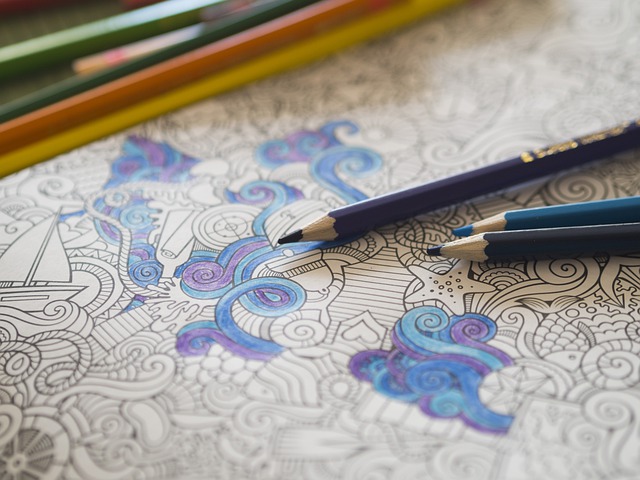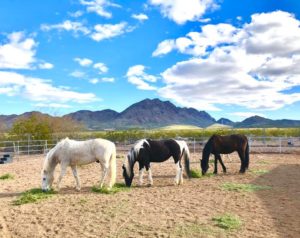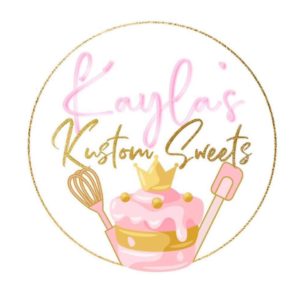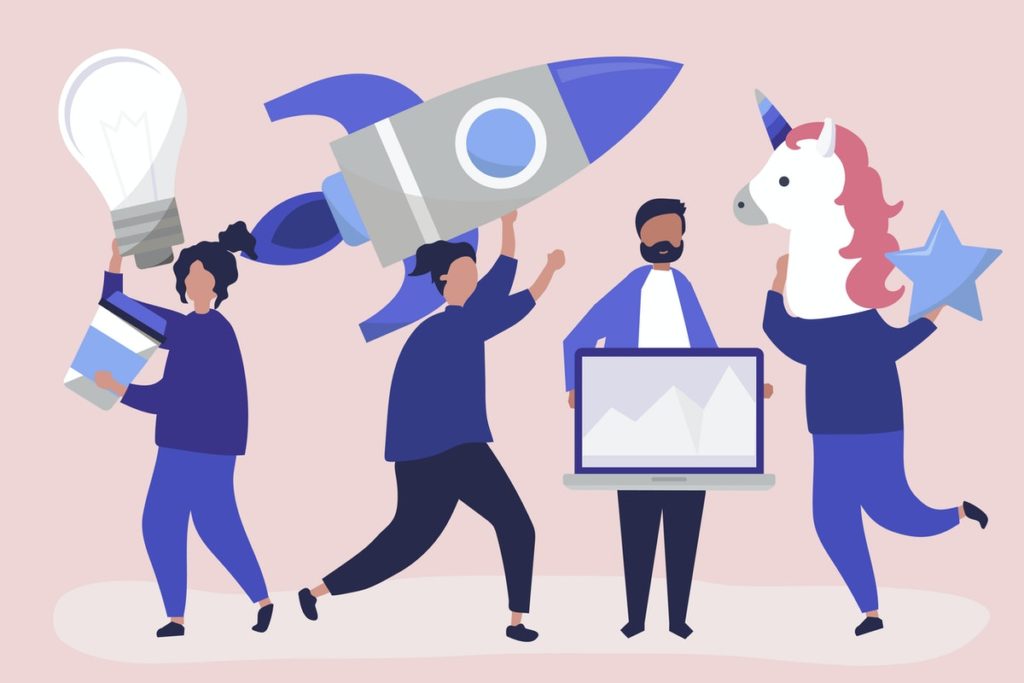
By: Catherine Daleo
Reading time: 3-5 mins (skimmed) or 13-15 mins (entire piece)
I had originally started writing this piece over a year ago and had gotten caught up in so many other things that it fell to the waist-side. I had also told myself I would work on finishing it during the pandemic, back in March and April when it was just starting. I didn’t finish it then either.
I had to work a bit on my own self-care practices during that time, on top of everything else. Now that I’ve had time to collect myself and reflect on the last few months, I finally sat down to work on this next part.
This part of this series covers ways in which you can practice self-care for the purpose of restoring your creativity, imagination, and wonder, while also exploring yourself and the world around you. It is presented in both a general sense, as well as in reference to coping with the current state of the world.
Whether you need something to help unwind from working on the frontlines of the pandemic, or you’re stuck at home on quarantine, I hope that at least one of these suggestions can help you stay afloat the uncharted waters of this year.
As always with my in-depth break downs, I don’t expect you to read the entire piece (but thank you if you do!) and I don’t expect everyone to adopt every suggestion outlined. Instead, skim the sections and find something that you think you can work into your routine!
Color and Create Art
Coloring and creating art have shown to help improve mental health and reduce feelings of anxiety or depression. It can also be a great form of meditation, leading to a reduction in stress, and an increase in concentration, creativity, and overall levels of happiness. While studies have shown greater effects from coloring in pre-made designs like a mandala or pattern, whether you’re doing that or freehand drawing, there are observed health benefits associated with creating art.
Art is an amazing form of self-expression. It’s whatever the person making it wants it to be. There are no limits to its potential or its impact or the messages it conveys. And the interpretations of art are infinite and completely unique. The person who is creating art will always see things differently than everyone else who is looking at the same piece.
An important thing to remember about art is that you don’t need to consider yourself an artist to create it or enjoy it. Don’t focus on whether or not you think it’s “good”. Make art for yourself and enjoy making it for the sake of making it.
If free-drawing isn’t your thing, you can start by getting yourself a coloring book with pre-made designs. There are so many kinds to choose from, the artistic opportunities are endless. You can even get a curse word coloring book if you want. There’s nothing like coloring a large, flowery design of the f-word to relax after a long day of being screamed at by customers (and dealing with people who refuse to wear a mask).
Or, if you’re stuck at home, it’s a great way to unplug from the never-ending onslaught of news and social media for a while. And, it can help a lot with being mindful and present, which is perhaps more important now than ever before. Instead of getting lost in a pattern of doom-scrolling, get lost in a pattern that you color.
So, grab your coloring utensil of choice and get to coloring! If you have kids, this is a great practice to do with them!
Read
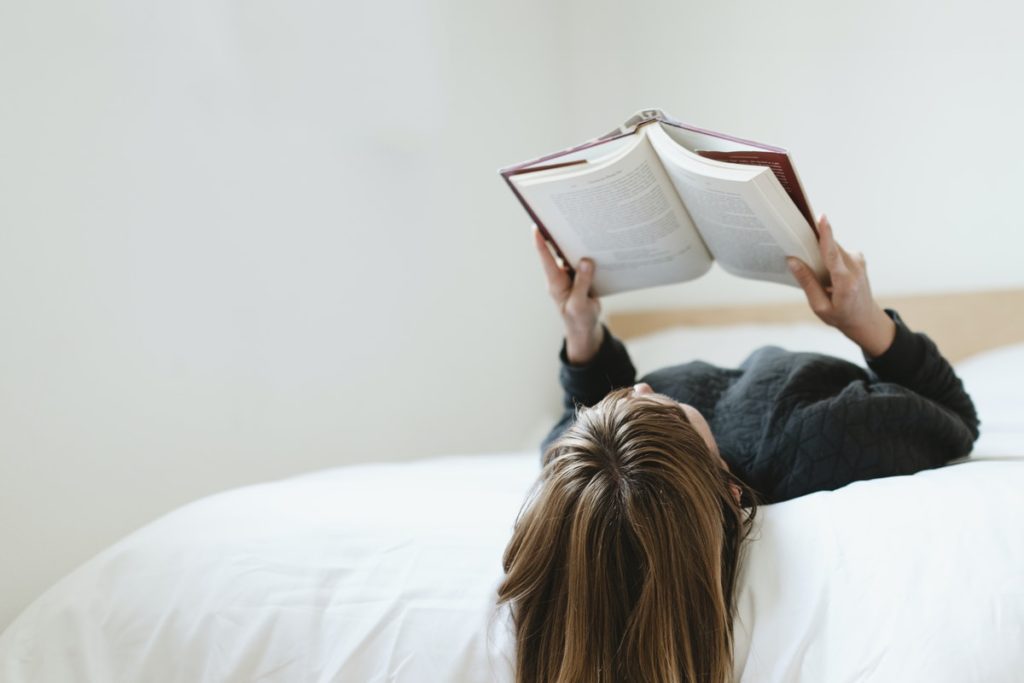
Something I’ll always remember is something that my high school auto shop teacher said, which had nothing to do with auto shop, is that most people stop reading after high school or college. On our lab days, he would give us a period of time just for reading whatever we wanted; it didn’t have to have anything to do with class.
It seems that people don’t elect to read on their own as much when they’re not being required to do so for a grade. Which to me never made sense; that was always the best time to read – when it was for yourself.
Reading increases our awareness of the world, our understanding of social structures, and it gives us a more developed sense of empathy and compassion, all thanks to a combination of words on a page that someone else put together for us.
Reading has this amazing power to pull you out of your own world and thrust you into a different one. It can show you a different time period, a different role or perspective, or get you to imagine ideas you never would have thought of yourself. And this goes for both fictional and non-fictional material you read. It goes for history and science just as it goes for fantasy and mystery.
Putting ourselves into another world or another person’s shoes, it gives us more perspective in our own life and world. We reflect on correlations between our reality and the abstract the material we read provides us. We are inspired by what we read.
Whether it’s to create your own fiction story after reading a fantasy novel, or whether it’s to join a cause or a movement because you were compelled by a history article on activism, reading builds up our ability to imagine, wonder, and create.
Reading is in itself its own form of expression. We express our will to learn and discover and imagine through reading. And it circles back and allows us to take what we’ve read, and use it to further express ourselves and to share knowledge and ideas and stories with others.
And, it is a form of escapism, which in the times we’re living in, escaping from time to time is almost vital to our mental health. Escapism can indeed be healthy, but only as long as we are balancing it with reality. Remember to come back to the present, to yourself, and to the world.
Don’t let books (or other forms of media for that matter) be a way that you keep your head in the sand about what is happening around you. It’s okay to unplug from the world for a while, but we can’t ignore it forever. Use books to educate yourself, to discover, to imagine, to reflect, to empathize and to understand.
So take some time to sit down in a comfy place with a nice beverage, and find something to read. It could be a novel, a textbook, a magazine, or even a newspaper. Physical, digital, or audio-recorded – as long as it’s something that interests you, informs you, gives you perspective, inspires you, or otherwise gives you enjoyment out of doing so, you’re doing great.
Appreciate your reading time. Use it as a period of meditation and reflection. Breathe fully and deeply while you are doing it. Be mindful of your body and of your emotions as you read, and how the material affects you.
Really consider the author’s words and messages in what you’re reading. Consider the correlations to your own life, as well as what doesn’t correlate. Feel the pain of people that you could never fully experience for yourself; feel their joy, their sorrow, their anger, their passion.
The feelings we get from reading remind us that we are human and that we are alive, and that there is so much more out there than what we know or have personally experienced.
Read as much and as often as you can. Read books that your friends and family suggest. Share books and suggestions with others. Get your children interested in reading, and find what they want to read. Let them pick what interests them, just as you would for yourself. It is good for the soul as much as it is for your mind, body, and life, and for society as a whole for people to be reading.
And especially during this time when you might have more opportunity to read, it’s good to take advantage of that. Even more importantly, given the current climate both politically and socially, it’s imperative that you also take some time to educate yourself on topics related to everything going on in our country and in our world. And of course, remember to take time to read fictional stories that make you think or see new perspectives.
For nonfiction reading, find books that will educate you about our country’s history; about other cultures and the experiences of others; about how to identify racism from an individual level to systemic; how to identify and reject fascism or totalitarianism; how to community build effectively; how to garden and be self-sufficient; and everything in between.
If non-fiction isn’t your thing, fictional stories of course also have endless benefits for readers and lessons that can be absorbed or can be related to real life. Those dystopian novels both new and old that we all loved as teenagers and young adults have helped many of us be mindful of systems of oppression and aware of the possibilities of what can happen to us in the future if we’re not careful. From 1984 to The Hunger Games, our imaginations have been captured and we’ve identified the correlations we’re shown in these stories to what we see in real life.
Step outside your comfort zone and read new things that offer you new ideas. That being said, whatever you feel like reading, read it – even if it’s a series you’ve read multiple times.
If you’re not enjoying the content you’re reading, then it’s not going to benefit or impact you very much. Just make sure you’re setting aside the time to do so, as you would any other part of your personal self-care regime!

